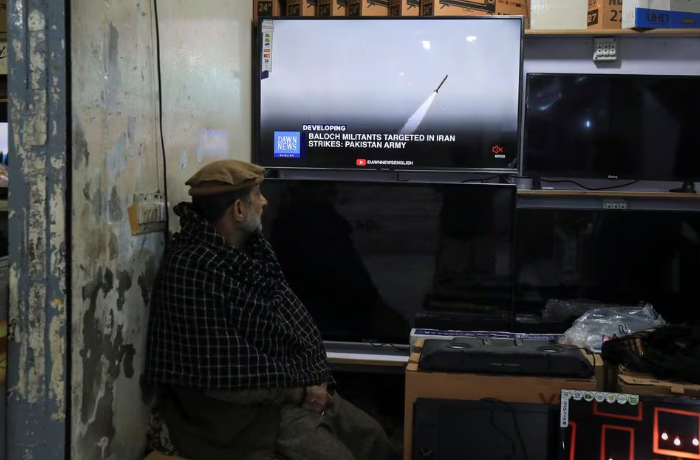Dubai/Islamabad,
Three Iranian officials, one Iranian insider, and an analyst all agreed that Iran’s ambitions for its internal security, not its ambitions in the Middle East, were the driving forces behind this week’s strike on Pakistan, which prompted a swift military response and stoked fears of greater regional instability.

According to two analysts and two officials, the two militarized neighbors wish to defuse tensions caused by the most high-profile cross-border incursions in recent years. They are frequently at conflict over border instability.
On Tuesday, Iran launched a missile assault in southwest Pakistan, targeting individuals it characterized as extremist Sunni Muslim militants, causing shockwaves throughout the area. Pakistan launched its first airstrike on Iranian territory since the Iran-Iraq War of 1980–1988 two days later, targeting what it claimed were separatist insurgents in Iran.
Attacking the Sunni militant Jaish al-Adl group in Pakistan, which Iran claims has ties to Islamic State, was one of the most aggressive cross-border strikes carried out by Iran on Tuesday. A large portion of Jaish’s membership was once a part of the Islamic State-aligned militant group Jundallah, which has since disbanded.
Concerns about instability in the Middle East, which have been growing since the outbreak of the Israel-Hamas conflict in October, were heightened by the move. In solidarity with the Palestinians of Gaza, freedom fighters from Lebanon and Yemen have attacked US and Israeli targets, including ships in the Red Sea.
It also occurred the day after Iran’s strikes in Iraq and Syria, which it said were directed at Islamic State activities and Israeli espionage, respectively.










































